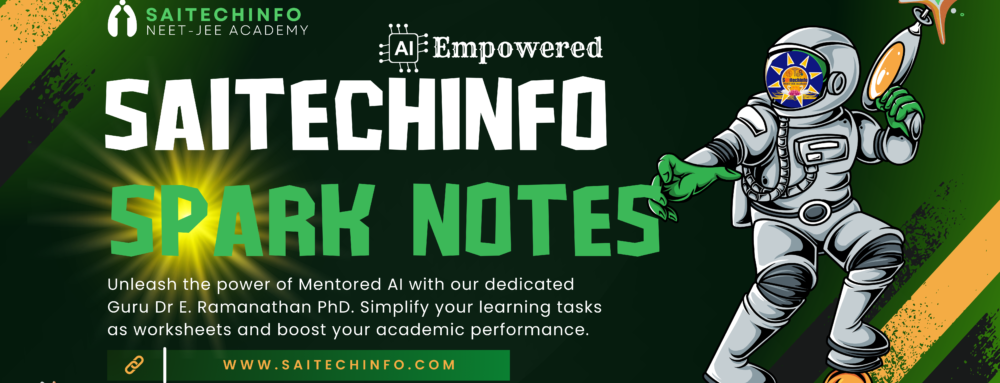
The IIT JEE Foundation Maths course for students from Standard 7 to Standard 10 typically focuses on building a strong foundation in mathematical concepts. The course structure is designed to progressively introduce and strengthen key topics required for higher-level problem-solving in the IIT JEE syllabus. Here’s a general breakdown of the course structure across these grades:
Standard 7:
- Number Systems: Integers, fractions, decimals, rational numbers
- Algebra: Introduction to algebraic expressions and simple equations
- Geometry: Basic geometrical ideas, lines and angles, triangles, and properties
- Mensuration: Perimeter and area of simple shapes
- Data Handling: Collection and representation of data, mean, median, and mode
- Ratio and Proportion: Concepts of ratio, proportion, and percentages
- Introduction to Exponents
Standard 8:
- Rational Numbers: Properties and operations on rational numbers
- Linear Equations in One Variable: Solving linear equations
- Understanding Quadrilaterals: Polygons, types of quadrilaterals, properties
- Data Handling: Graphical representation of data (bar graphs, pie charts)
- Squares and Square Roots: Properties and applications
- Cubes and Cube Roots: Calculations and problem-solving
- Mensuration: Volume and surface area of solid figures like cubes and cylinders
- Introduction to Algebraic Identities: Expansion and factorization
Standard 9:
- Real Numbers: Rational and irrational numbers, decimal expansions
- Polynomials: Degree, zeroes of polynomials, factorization
- Coordinate Geometry: Cartesian plane, plotting points, introduction to equations of lines
- Linear Equations in Two Variables: Graphical method of solution
- Quadrilaterals: Theorems on quadrilaterals and properties
- Introduction to Circles: Tangents and secants, basic properties
- Surface Areas and Volumes: Surface area and volume of spheres, hemispheres, cones, and other solids
- Probability: Introduction to experimental probability
- Trigonometry: Basic trigonometric ratios and their applications
Standard 10:
- Real Numbers: Euclid’s division lemma, Fundamental Theorem of Arithmetic
- Polynomials: Relationship between zeroes and coefficients, division algorithm
- Pair of Linear Equations in Two Variables: Graphical and algebraic methods of solving equations
- Quadratic Equations: Solutions by factorization and quadratic formula
- Arithmetic Progressions: General term, sum of n terms
- Triangles: Similarity of triangles, criteria, theorems, applications
- Coordinate Geometry: Distance formula, section formula, area of triangles
- Trigonometry: Heights and distances, identities, and applications
- Circles: Tangents to a circle, properties, and theorems
- Surface Areas and Volumes: Advanced problems on surface area and volumes
- Statistics: Mean, median, mode, and cumulative frequency
- Probability: Elementary probability concepts
This foundational course focuses on conceptual clarity, problem-solving techniques, and introduces higher-level mathematical thinking gradually, which is crucial for IIT JEE preparation.
The NEET Foundation course for Physics, Chemistry, and Biology from Standard 7 to Standard 10 aims to build a solid base in science concepts, which are crucial for competitive exams like NEET. The course progressively covers fundamental topics, ensuring a strong understanding that will help students excel in higher classes and competitive exams. Below is a general structure of the course for each subject across these grades.
Physics:
Standard 7:
- Motion and Time: Types of motion, speed, measuring time, distance-time graph
- Electricity and Circuits: Basic introduction to circuits, conductors, and insulators
- Light: Reflection, shadows, and mirrors
- Heat: Temperature, effects of heat, transfer of heat (conduction, convection, radiation)
- Force and Pressure: Types of forces, effects, pressure in liquids and gases
Standard 8:
- Force and Pressure: Applications, contact and non-contact forces, pressure in fluids
- Friction: Laws of friction, advantages, and disadvantages, methods to reduce friction
- Sound: Propagation of sound, amplitude, frequency, and pitch
- Chemical Effects of Electric Current: Conduction through liquids, electroplating
- Light: Laws of reflection, regular and diffused reflection, human eye and defects
Standard 9:
- Motion: Concept of motion, velocity, acceleration, graphs of motion, equations of motion
- Force and Laws of Motion: Newton’s laws, inertia, action-reaction forces
- Gravitation: Universal law of gravitation, acceleration due to gravity, mass and weight
- Work and Energy: Work, energy, power, types of energy
- Sound: Nature of sound waves, speed of sound, Doppler effect
Standard 10:
- Light – Reflection and Refraction: Laws of reflection, refraction, lenses, image formation
- Electricity: Electric current, Ohm’s law, resistance, series, and parallel circuits
- Magnetic Effects of Electric Current: Magnetic fields, electromagnetism, electric motor
- Sources of Energy: Conventional and non-conventional sources, solar, wind, hydro energy
- Work, Power, Energy: Types of energy, law of conservation of energy, power
Chemistry:
Standard 7:
- Acids, Bases, and Salts: Properties, reactions of acids and bases, neutralization
- Physical and Chemical Changes: Characteristics of physical and chemical changes
- Fibre to Fabric: Synthetic fibers, natural fibers, properties of materials
- Water: States of water, water cycle, water conservation
Standard 8:
- Synthetic Fibres and Plastics: Properties, uses, advantages, and disadvantages
- Metals and Non-metals: Properties, reactions with acids, water, and air
- Coal and Petroleum: Fossil fuels, uses, conservation
- Combustion and Flame: Types of combustion, flame structure, fire control
Standard 9:
- Matter – Its Nature and Behavior: Classification of matter, states, and properties
- Atomic Structure: Atomic models, isotopes, isobars, atomic number, and mass number
- Chemical Reactions: Types of reactions, balancing chemical equations
- Atoms and Molecules: Laws of chemical combination, molecular mass, and mole concept
- Structure of the Atom: Rutherford, Bohr models, electrons, protons, neutrons
Standard 10:
- Chemical Reactions and Equations: Types of chemical reactions, balancing equations
- Acids, Bases, and Salts: Reactions, pH scale, neutralization reactions
- Metals and Non-Metals: Properties, reactivity series, corrosion, alloys
- Carbon and its Compounds: Covalent bonding, hydrocarbons, functional groups
- Periodic Classification of Elements: Modern periodic table, trends in properties
Biology:
Standard 7:
- Nutrition in Plants and Animals: Autotrophic and heterotrophic nutrition, human digestive system
- Respiration in Organisms: Breathing and respiration, human respiratory system
- Transportation in Animals and Plants: Circulatory system, blood vessels, xylem, and phloem
- Reproduction in Plants: Asexual and sexual reproduction, pollination, fertilization
Standard 8:
- Cell – Structure and Functions: Plant and animal cells, cell organelles, cell division
- Reproduction in Animals: Reproductive systems, modes of reproduction
- Microorganisms – Friend and Foe: Types of microorganisms, useful and harmful microorganisms
- Conservation of Plants and Animals: Deforestation, biosphere reserves, wildlife sanctuaries
Standard 9:
- The Fundamental Unit of Life: Structure of cell, cell organelles, and their functions
- Tissues: Plant and animal tissues, structure, and functions
- Diversity in Living Organisms: Classification of plants and animals, characteristics
- Why Do We Fall Ill?: Health and diseases, pathogens, principles of treatment and prevention
- Natural Resources: Resources, management of natural resources, environmental conservation
Standard 10:
- Life Processes: Nutrition, respiration, transportation, excretion in plants and animals
- Control and Coordination: Nervous system, reflex actions, plant hormones
- Reproduction: Asexual and sexual reproduction in plants and animals, human reproductive system
- Heredity and Evolution: Mendel’s laws, evolution, natural selection, speciation
- Our Environment: Ecosystem, food chains, and webs, pollution, ozone layer
- Management of Natural Resources: Sustainable management, conservation strategies
This NEET Foundation course focuses on reinforcing concepts through problem-solving, critical thinking, and real-life applications, preparing students for future competitive exams like NEET.



